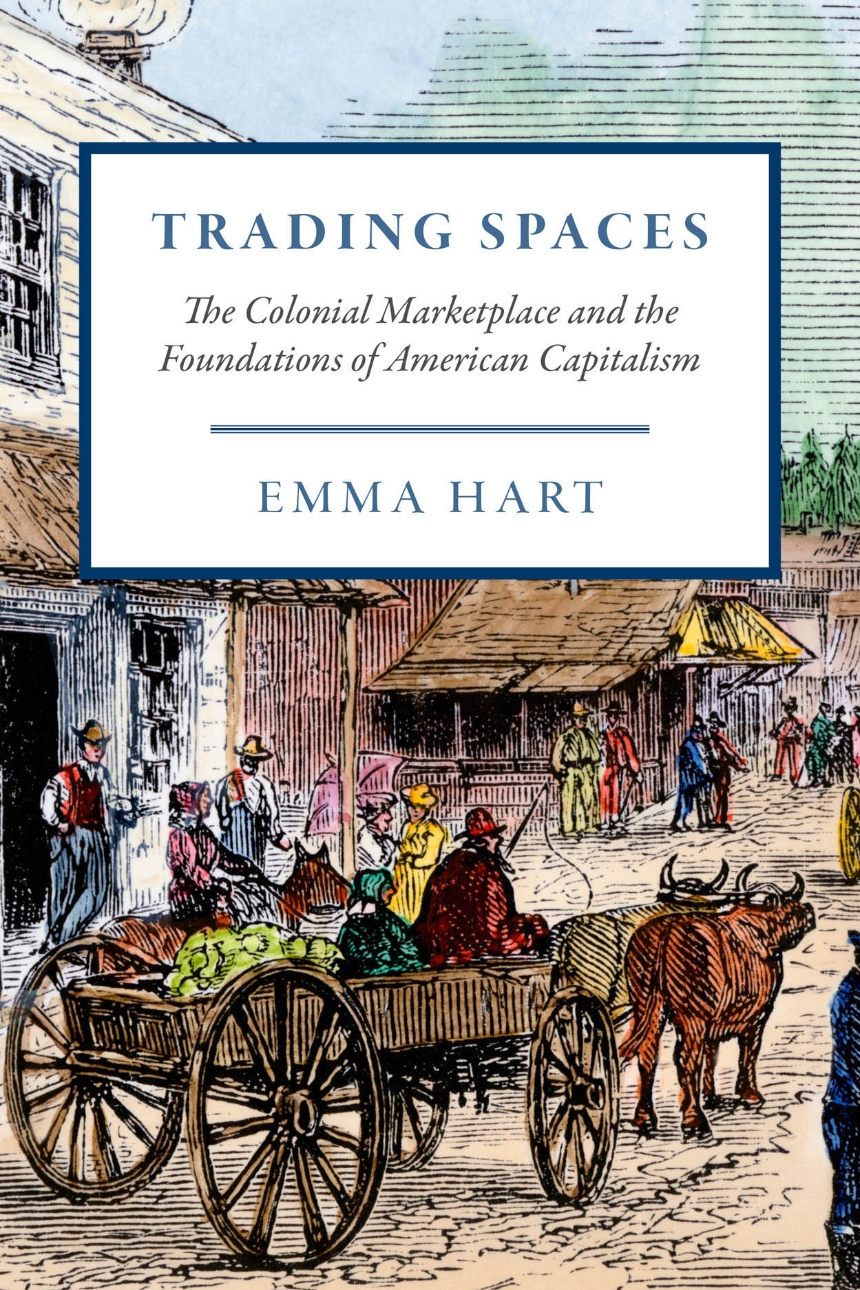Trading Spaces
The Colonial Marketplace and the Foundations of American Capitalism
9780226833279
9780226659817
9780226659954
Trading Spaces
The Colonial Marketplace and the Foundations of American Capitalism
Looks at the shift from the marketplace as an actual place to a theoretical idea and how this shaped the early American economy.
When we talk about the economy, “the market” is often just an abstraction. While the exchange of goods was historically tied to a particular place, capitalism has gradually eroded this connection to create our current global trading systems. In Trading Spaces, Emma Hart argues that Britain’s colonization of North America was a key moment in the market’s shift from place to idea, with major consequences for the character of the American economy.
Hart’s book takes in the shops, auction sites, wharves, taverns, fairs, and homes of seventeenth- and eighteenth-century America—places where new mechanisms and conventions of trade arose as Europeans re-created or adapted continental methods to new surroundings. Since those earlier conventions tended to rely on regulation more than their colonial offspring did, what emerged in early America was a less-fettered brand of capitalism. By the nineteenth century, this had evolved into a market economy that would not look too foreign to contemporary Americans. To tell this complex transnational story of how our markets came to be, Hart looks back farther than most historians of US capitalism, rooting these markets in the norms of seventeenth- and eighteenth-century Britain. Perhaps most important, this is not a story of specific commodity markets over time but rather is a history of the trading spaces themselves: the physical sites in which the grubby work of commerce occurred and where the market itself was born.
When we talk about the economy, “the market” is often just an abstraction. While the exchange of goods was historically tied to a particular place, capitalism has gradually eroded this connection to create our current global trading systems. In Trading Spaces, Emma Hart argues that Britain’s colonization of North America was a key moment in the market’s shift from place to idea, with major consequences for the character of the American economy.
Hart’s book takes in the shops, auction sites, wharves, taverns, fairs, and homes of seventeenth- and eighteenth-century America—places where new mechanisms and conventions of trade arose as Europeans re-created or adapted continental methods to new surroundings. Since those earlier conventions tended to rely on regulation more than their colonial offspring did, what emerged in early America was a less-fettered brand of capitalism. By the nineteenth century, this had evolved into a market economy that would not look too foreign to contemporary Americans. To tell this complex transnational story of how our markets came to be, Hart looks back farther than most historians of US capitalism, rooting these markets in the norms of seventeenth- and eighteenth-century Britain. Perhaps most important, this is not a story of specific commodity markets over time but rather is a history of the trading spaces themselves: the physical sites in which the grubby work of commerce occurred and where the market itself was born.
296 pages | 10 halftones, 1 table | 6 x 9 | © 2019
American Beginnings, 1500-1900
Economics and Business: Economics--History
History: American History
Reviews
Table of Contents
Introduction
Part 1: The Early Modern Marketplace and its Colonial Encounter
1 A Journey through Early Modern Trading Spaces
2 The Market Turned Upside Down
Part 2: Remaking the Marketplace
3 Making a Colonial Marketplace
4 The Resurgence of Early Modern Market Values
Part 3: Confronting the Colonial Marketplace
5 Revolution in the Marketplace
6 Making a Republican Marketplace
Conclusion: Constitution Making and the Marketplace
Epilogue:The Colonial Marketplace’s American Legacy
Acknowledgments
Notes
Index
Part 1: The Early Modern Marketplace and its Colonial Encounter
1 A Journey through Early Modern Trading Spaces
2 The Market Turned Upside Down
Part 2: Remaking the Marketplace
3 Making a Colonial Marketplace
4 The Resurgence of Early Modern Market Values
Part 3: Confronting the Colonial Marketplace
5 Revolution in the Marketplace
6 Making a Republican Marketplace
Conclusion: Constitution Making and the Marketplace
Epilogue:The Colonial Marketplace’s American Legacy
Acknowledgments
Notes
Index
